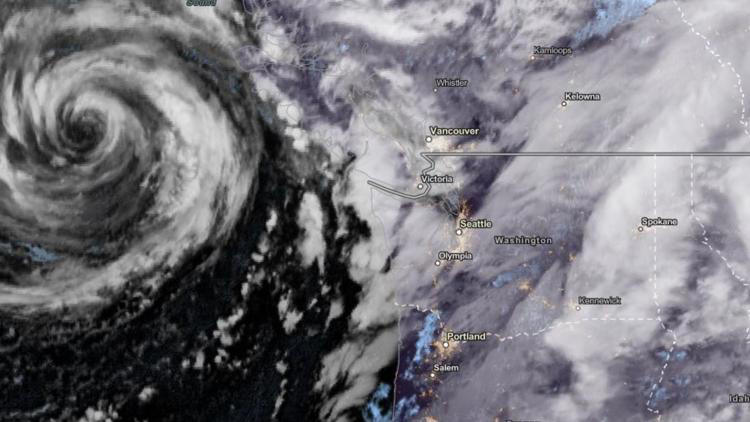After the Storm: A Baha’i Guide to Recovering from a Cyclone
When nature unleashes its formidable wrath, much like a cyclone dancing wildly across the canvas of our lives, the aftermath can be both bewildering and humbling. In the wake of such tumultuous events, the Baha’i teachings provide a rich tapestry of principles and practices that can help foster resilience and recovery. This guide elucidates strategies inspired by Baha’i philosophy, illuminating the path toward healing, revitalization, and spiritual growth in the aftermath of a storm.
The Embrace of Unity
In the immediate aftermath of a cyclone, the landscape often appears splintered and chaotic. However, it is in these moments of disarray that the Baha’i principle of unity resonates profoundly. The belief that humanity is like a single body – each individual a vital organ contributing to the whole – lays the groundwork for collective recovery. When communities rally together, pooling their resources, skills, and compassion, they exemplify a core Baha’i tenet: “The earth is but one country, and mankind its citizens.” This collective response not only addresses physical needs but also fortifies emotional well-being through mutual support.
Cultivating Patience and Perseverance
The journey of recovery post-cyclone is often fraught with challenges, reminiscent of a long, winding path shrouded in fog. Here, the Baha’i teachings on patience become indispensable. The writings emphasize that endurance embodies a significant spiritual quality, enabling an individual to withstand life’s vicissitudes. By cultivating patience, one can navigate the labyrinth of recovery without succumbing to despair. In moments of uncertainty, it is vital to engage in self-reflection and articulate hopes, fostering a forward-looking mindset that aligns with the Baha’i commitment to progressive realization and eventual tranquility.
Service to Others as a Pillar of Recovery
In Baha’i thought, service is a profound avenue through which individuals can channel their energies for the collective good. Post-cyclone, acts of service become a balm that soothes not only the afflicted but also the giver. Engaging in volunteer opportunities, whether it be organizing food drives, clearing debris, or providing emotional support, embodies the essence of service. Such actions not only alleviate the burdens of others but also reinforce bonds of solidarity, fostering a sense of purpose and community in the arduous journey of rebuilding.
Nurturing the Spirit through Prayer and Reflection
In the stillness after the storm, when the noise of chaos begins to fade, the practice of prayer and reflection assumes unparalleled importance. Baha’i teachings advocate for daily prayer as a means of reconnecting with the divine, offering solace amid turmoil. These sacred moments foster an atmosphere of introspection, wherein individuals can process their experiences, mourning losses while simultaneously nurturing hope. Reflecting on the metaphor of the lotus, which blooms resplendently in muddy waters, individuals can find inspiration in recognizing that beauty can emerge from even the most challenging circumstances.
Reconstruction with a Vision
Rebuilding after a cyclone is not merely about restoration; it is an opportunity to reconstruct with intention and foresight. According to Baha’i principles, every individual possesses the capacity for creativity and innovation. As communities devise plans to reconstruct homes and infrastructure, they are encouraged to integrate sustainable practices and bolster resilience against future calamities. The vision extends beyond the physical to encompass spiritual and social rejuvenation. By establishing educational programs, community centers, and cultural activities, the collective aspiration for a more harmonious society takes root.
Acceptance of Change: A Gateway to Strength
Every cyclone inevitably alters the landscape, reshaping not just the physical terrain but also the emotional and social contexts of communities. Baha’i teachings encourage the acceptance of change, viewing it not as a loss but as an opportunity for transformation. By embracing impermanence, individuals can unlock profound insights and develop deeper connections to themselves and others. This acknowledgment facilitates healing and fosters a proactive stance toward future uncertainties. Inherent in this process is the recognition that resilience often emerges from embracing the fluidity of existence.
The Role of Education in Fostering Resilience
Baha’i teachings place significant emphasis on the transformative power of education. In the post-cyclone landscape, educational initiatives serve as instruments of empowerment. By equipping individuals with knowledge and skills, communities can foster self-sufficiency and resilience. Educational programs that promote critical thinking, emotional intelligence, and environmental stewardship are crucial in inspiring individuals to become agents of change within their communities. Thus, the recovery process evolves into a platform for lifelong learning and personal development.
Conclusion: Rising from the Ashes
As communities emerge from the shadows cast by the cyclone, the Baha’i teachings provide guiding principles that facilitate recovery and renewal. Unity, patience, service, and spiritual engagement become beacons of hope. Each action, no matter how small, contributes to a greater narrative of resilience and strength. In the wake of destruction lies the potential for transformation and growth; this ethos embodies the essence of Baha’i guidance. Through collective efforts, prayerful introspection, and an unwavering commitment to service, individuals can rise from the ashes, forging communities that are not only restored but reinvigorated, thriving with purpose and compassion.
